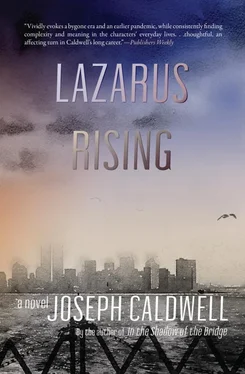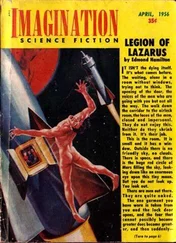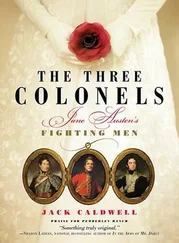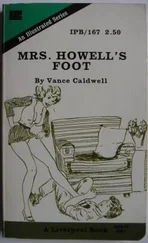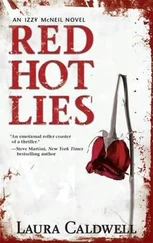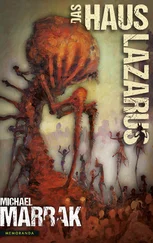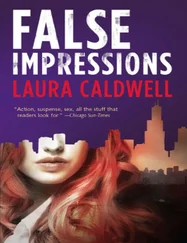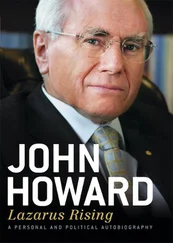Dempsey went to the counter that separated the alcove from the gallery and began signing her name in the register. She wanted Harden to know she’d come. The smell of vomit reached her nostrils; she hoped it came from the scarf in her tote, or even her breath, and not from the sculpture she’d just defiled. After jamming the scarf deeper down, she began adding her last name to her first, but before she could finish—between the o and the a of Coates —one further thought came to her. Calvin, an actor friend, had gone blind. Cynthia, an illustrator of children’s books, had gone mad. Retinitis for Calvin, dementia for Cynthia. Would she, Dempsey, refuse, in her resolve, protection against these final afflictions? She wrote the a in her name, then stopped again. Would she be willing, without a fight, to surrender her mind and her sight? If she could agree to this, would it indicate that dementia had already begun? A painter to sacrifice her eyes; an artist to dismiss her mind?
The pen hovered over the page. It seemed for a moment that she would cross out what she’d already written. The pen wavered just above the a , then was almost slammed down onto the paper. Pressing firmly into the page, she completed her name, Dempsey Coates, and let the pen drop onto the counter next to the book. With her name, her very own sacred name, she had subscribed to all that she had thought. The pact was made, immutable and beyond revision. She would prove herself greater than her illness; there would be nothing it could inflict that she would not endure. The triumph would be hers. If, that is, she could stick to her guns. Even though they were aimed directly at herself.
Dempsey now added another pill to the snifter, this one a fine strong red. She then snapped the lid shut, reset the timer, and put the dispenser back into her pocket.
“Maybe you should start taking your pills again,” Johnny said. “I mean, since you felt so funny this morning, like something was really happening.”
“No thank you.”
“Maybe this is something new starting. It could get worse.”
“That’s all right. I kind of liked it. Snap. Crackle. Beats pneumonia—although it’s probably not half the fun dementia’s going to be.”
She picked up the syrup and continued to pour it over the pancakes. “Look,” she said. “See how beautiful it is? The color, the way it pours, the way it spreads over the pancakes and falls down the sides. And then we get to eat it. What could be better?”
“A pill.”
Dempsey set the syrup down and slowly drew her hand away, delicately, in tribute to the syrup’s beauty. She even rubbed the tips of her fingers together to catch the feel of whatever might have stuck. “Then take a pill,” she said. “Help yourself.”
“You want me to? I will.”
“Go ahead.”
“If you won’t take them, I will. How about that?”
“Your funeral, not mine.”
“Good.”
She watched him put down his fork and stare at the pancakes on his plate. “Don’t, Johnny. Almost any of them could kill you,” she said. And you need to live.” She picked out a burgundy-and-yellow capsule. “Rimactane,” she said. “Wrecks your liver. It also makes you shit and piss orange.” She dropped it back into the snifter and stirred a finger in among the pills. “It’s all here. Seizures? Nausea? Bone damage? Take your pick. And that’s just for starters.” She fished out the robin’s-egg blue. “Zovirax. Hallucinations. Or here’s one I suppose I should take myself, Isoniazid. You might see bright colors, strange designs.”
Johnny picked up his fork and pushed his pancakes from one side of his plate to the other. “They help more than they hurt,” he muttered. He dipped his hand in. “Then I’ll take a red one.” He took one out and popped it into his mouth.
“No, definitely not that one. Please, Johnny. Not that one.”
Johnny picked the pill off his tongue. “Why not?”
“Just not that one.”
He waited, then asked, “Is it one of those?”
“Just don’t swallow it.”
“Is it? Is it one of those? One of the ones Winnie gave you?”
“Oh, them. No. I never should have told you about them.”
“She shouldn’t have given them to you.”
“Oh? And what’s the alternative? That I starve to death while my body bloats like a Macy’s balloon? That my hair drops out of my head and my insides, my stomach, my liver, my kidneys give out?”
Johnny said nothing.
“And then, at last! Dementia to the rescue! Is that what you want?”
“No,” he said quietly. “It’s not what I want.”
Dempsey looked at him a moment, then said, “Maybe I’m crazy already. Maybe it isn’t anything physical that happens to the brain that drives us mad at the end. Maybe it’s the epidemic itself, our knowing what’s happening, what’s going to happen. Maybe that’s enough to send us over the edge. Maybe this is the beginning and pretty soon it will be finished.”
She leaned her head back as far as it could go and blinked at the ceiling. “When I’m crazy,” she said, “maybe that’s when I’ll know what to do for the raising of poor Lazarus. When the dementia finally hits me, that’s when I’ll be able to paint the poor man’s Resurrection. Maybe only someone crazy would really know. So I’ve got to keep myself alive until then, until I go mad. It’s there—the painting. I know it is. But my brain’s got to get itself really rattled first, really stirred up. Then it’ll come. Lazarus, rising, shooting up and out of my crazed brain and splattering himself all over the inside of my skull. Maybe I’ll be blind by then. I’ll be blind and crazy and then I’ll see it: The Raising of Lazarus . And I’ll paint it just like that, just the way it really is. It doesn’t matter I’m blind. It doesn’t matter I’m crazy. I’ll paint it. And it’ll be right.”
Lightly she touched Johnny’s hand. “Keep me alive until then,” she said quietly. “That’s all I ask. Keep me going. Save me for the dementia. It can happen. It happens all the time, a lot more than it used to. All the medicines, they keep you alive so you can finally go crazy.” She smiled a wan smile. “Tell me you’ll keep me alive until then. Promise?”
“And you promise me you won’t take the pills Winnie gave you?”
Dempsey leaned back in her chair, still smiling but sadder now. “Did I tell you you’re the handsomest man who has ever sat at this table? And as for that pill you’ve got, go ahead and swallow. It’s Zithromax. But be forewarned it’ll make your vagina itch.”
“Please,” said Johnny. “Promise.”
Again she gently touched the back of his hand. “As a matter of fact, you’re the handsomest, the most beautiful man who has ever stopped out of that noisy elevator.” She paused, then added, “And you can cook too. How about that?”
Johnny raised his hand, lifting hers to his lips. Gently, sadly, he kissed it, looked at it a moment, then, more slowly, kissed it again.
Johnny had heard that using newspaper was best for cleaning windows—something about the newsprint giving the glass a higher shine. But since newsprint had been superseded and he’d never liked the print smearing onto his hands, he always used paper towels—a luxury, a waste, but so what? The credit he’d accrued just by washing the windows more than compensated for the needless extravagance.
More often than not, the symbiosis between Johnny and his conscience worked effectively to the benefit of his ease and the enhancement of his self-regard. His free will was allowed to remain fairly free, permitting him to go after what he wanted without too much reflective foot dragging. All of which means that Johnny was washing the third-floor windows of the firehouse, inside and out, using paper towels, and enjoying himself.
Читать дальше
